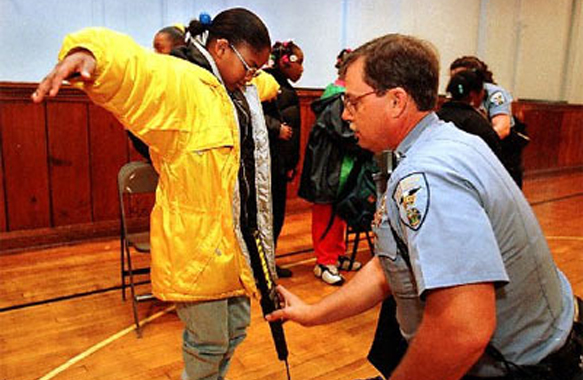By Paul L. Thomas, Ed.D. | Originally Published at The Becoming Radical. Matrch 28, 2014
With Waiting for excuses for the inexcusable, Leonard Pitts Jr. offers us all a watershed moment—one that involves reclaiming the language and the narratives in order to take direct action against the one thing we refuse to acknowledge or change in the U.S., racism.
“What excuses will they make this time?” Pitts begins, emphasizing:
Meaning that cadre of letters-to-the-editor writers and conservative pundits who so reliably say such stupid things whenever the subject is race. Indeed, race is the third rail of American conscience; to touch it is to be zapped by rationalizations, justifications and lies that defy reason, but that some must embrace to preserve for themselves the fiction of liberty and justice for all. Otherwise, they’d have to face the fact that advantage and disadvantage, health and sickness, wealth and poverty, life and death, are still parceled out according to melanin content of skin.
And then Pitts makes a case that must stand as a model for any and all who seek the sort of equity and dignity that political leaders pay lip service to while ensuring nothing of the kind: Pitts presents evidence in the face of ideological claims with no basis in evidence:
One waits, then, with morbid fascination to see what excuse those folks will make as federal data released last week reveal that African-American children are significantly more likely to be suspended – from preschool. Repeating for emphasis: public preschool, that phase of education where the curriculum encompasses colors, shapes, finger painting and counting to 10. Apparently, our capacity for bias extends even there. According to the Department of Education, while black kids make up about 18 percent of those attending preschool, they account for 42 percent of those who are suspended once – and nearly half of those suspended more than once.
Let us then all confront The Undeniables:
- Ideological narratives and policies built on those narratives—”grit,” “no excuses,” and “zero tolerance”—are almost exclusively driven by the privileged.
- Those same policies and narratives are almost exclusively imposed on marginalized groups of students—African American, Latino/a, impoverished (see for example, the KIPP model, its primary focus, and its mantra: Work hard. Be nice.).
- The consequences of those narratives and policies serve to maintain the interests of the privileged at the expense of the marginalized.
Yes, it is time for “grit” (often defined as “perseverance and passion for long-term goals”). We must not waver from demanding an end to inequity in the form of racism, classism, and sexism.
Yes, it is time for “no excuses.” As Pitts explains, there are no excuses for the “made up facts,” the dodges, and the fabricated fairy tales designed to maintain the current imbalance of opportunity in the U.S. (see the Gritty White Hope lesson on Steve Jobs presented by NPR without any criticism).
Yes, it is time for “zero tolerance.” We must have zero tolerance for the false narratives (see the roots of seeking ideological narratives to prop up capitalistic goals) perpetuated by the privileged to keep most everyone else in a state of the compliant worker.
And thus, a reader:
- Waiting for excuses for the inexcusable, Leonard Pitts Jr.
- The Secret Lives of Inner-City Black Males, Ta-Nehisi Coates
- Black Pathology and the Closing of the Progressive Mind, Ta-Nehisi Coates
- The New Jim Crow, Michelle Alexander
- Prekindergarteners Left Behind: Expulsion Rates in State Prekindergarten Programs, Walter S. Gilliam (2005)
- Implementing Policies to Reduce the Likelihood of Preschool Expulsion, Walter S. Gilliam (2008)
- Police in the Hallways: Discipline in an Urban High School, Kathleen Nolan
- Denying Racism Has an Evidence Problem
- The Mistrial of Jordan Davis: More Evidence Problems for Denying Racism
- End Zero-Tolerance Policies: A Reader
- Civil Rights Issue of Our Time?
- Beyond “Doubly Disadvantaged”: Race, Class, and Gender in U.S. Schools and Society












Leave A Comment